
A mid a choppy sea on 6 June 1944, a 20-year-old leading aircraftman of the RAF Beach Squadrons sat on top of his truck and observed the vast armada he was part of: “It was unbelievable. You could not realise what was going on. There were thousands of ships and landing craft, battleships, destroyers, aircraft flying overhead… the noise was unbelievable. When the navy started bombarding a couple of hours before we went ashore, it was horrendous.”
As the flotilla made its way south, David Teacher remembers wanting to start what he had trained for months to do: “I just wanted to get on with it. I was just keen to get ashore and get started. We’d been trained repeatedly and now it was a case of putting it all into practice and seeing how well it went. As it happens it went very well indeed. The weather caused more damage than the enemy.”
The official orders for the Beach Squadrons on D-Day were as follows: “Nos. 1, 2 and 4 RAF Beach Squadrons will work with the Army Beach Organisation to supervise the discharge of RAF personnel, vehicles and stores, and movement to the forward area of all units.” The ‘discharge’ area for Teacher would be on Juno sector.
Juno formed part of five Allied assault sectors along the Normandy coast. The area was a 6-mile (10km) stretch of coast centred around the small fishing village of Courseulles-sur-Mer and split into three sectors known as ‘Love’, ‘Mike’ and ‘Nan’. Unlike Gold and Sword sectors, which were primarily assaulted by the British, Juno was in the hands of the Canadian 3rd Division. Their task would be to link up with Gold to the west and Sword to the east. Nevertheless, before the bulk of the Canadians could land, the beach units – including Teacher’s – had to disembark and establish themselves.
هذه القصة مأخوذة من طبعة Issue 133 من History of War.
ابدأ النسخة التجريبية المجانية من Magzter GOLD لمدة 7 أيام للوصول إلى آلاف القصص المتميزة المنسقة وأكثر من 9,000 مجلة وصحيفة.
بالفعل مشترك ? تسجيل الدخول
هذه القصة مأخوذة من طبعة Issue 133 من History of War.
ابدأ النسخة التجريبية المجانية من Magzter GOLD لمدة 7 أيام للوصول إلى آلاف القصص المتميزة المنسقة وأكثر من 9,000 مجلة وصحيفة.
بالفعل مشترك? تسجيل الدخول
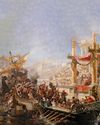
NAUMACHIA TRUTH BEHIND ROME'S GLADIATOR SEA BATTLES
In their quest for evermore novel and bloody entertainment, the Romans staged enormous naval fights on artificial lakes
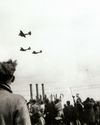
OPERATION MANNA
In late April 1945, millions of Dutch civilians were starving as Nazi retribution for the failed Operation Market Garden cut off supplies. eet as In response, Allied bombers launched a risky mission to air-drop food
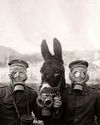
GASSING HITLER
Just a month before the end of WWI, the future Fuhrer was blinded by a British shell and invalided away from the frontline. Over a century later, has the artillery brigade that launched the fateful attack finally been identified?
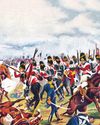
SALAMANCA
After years of largely defensive campaigning, Lieutenant General Arthur Wellesley went on the offensive against a French invasion of Andalusia
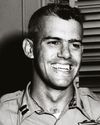
HUMBERT 'ROCKY'VERSACE
Early in the Vietnam War, a dedicated US Special Forces officer defied his merciless Viet Cong captors and inspired his fellow POWs to survive
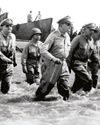
LEYTE 1944 SINKING THE RISING SUN
One of the more difficult island campaigns in WWII's Pacific Theatre saw a brutal months-long fight that exhausted Japan’s military strength

MAD DAWN
How technology transformed strategic thinking and military doctrine from the Cold War to the current day
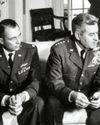
BRUSHES WITH ARMAGEDDON
Humanity came close to self-annihilation with the Cuban Missile Crisis, Broken Arrows’ and other nuclear near misses
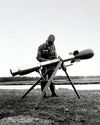
THE DEADLY RACE
How the road to peace led to an arms contest between the USA and USSR, with prototypes, proliferation and the world’s biggest bomb
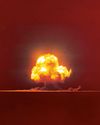
THE MANHATTAN PROJECT
Einstein, Oppenheimer and the race to beat Hitler to the bomb. How a science project in the desert helped win a war